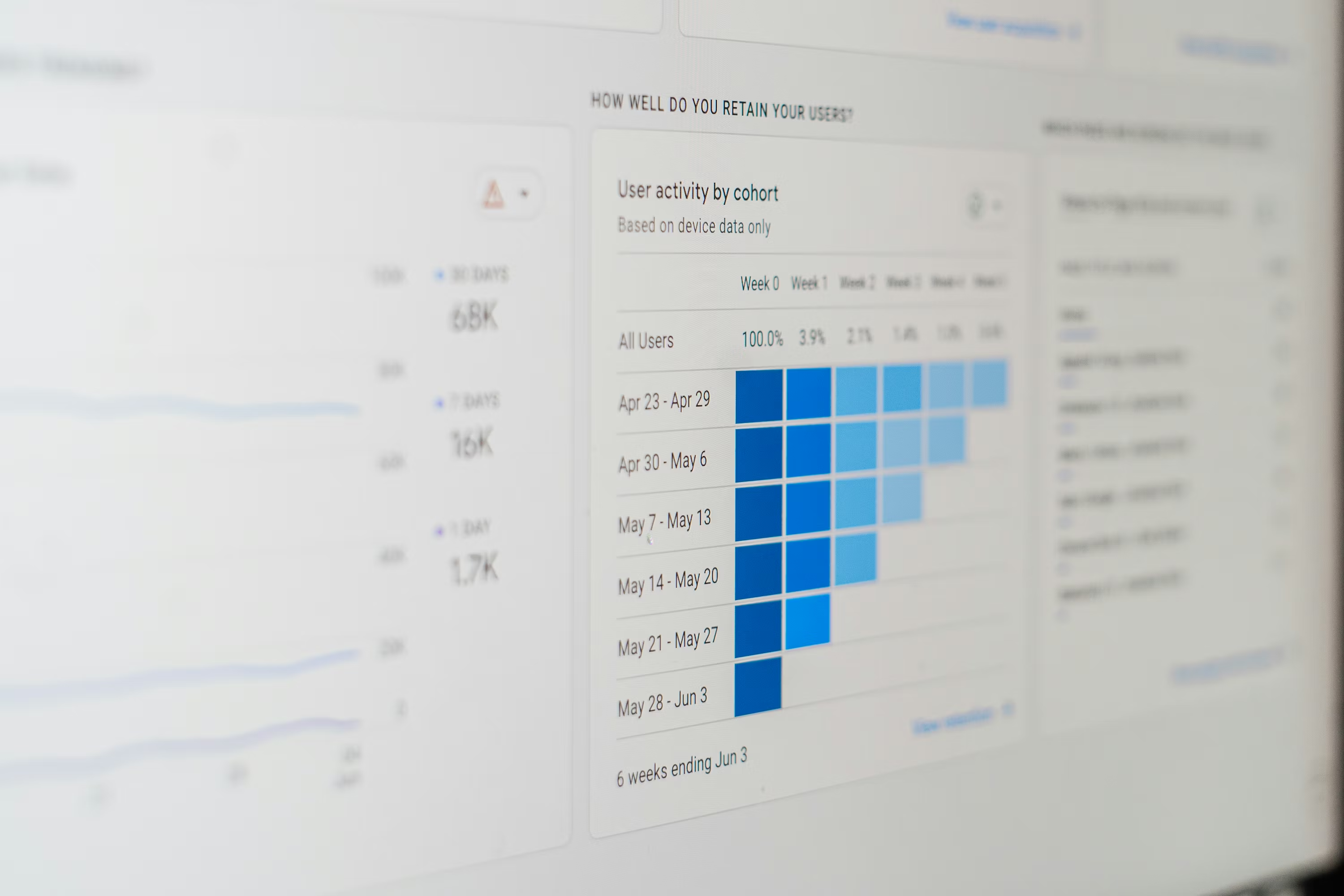Does Google Search Console provide accurate data?
Google Search Console is a valuable tool for website owners and SEO professionals to monitor their site's performance metrics. It collects data directly from Google's index, providing insights into how the search engine views and interacts with the website. The information provided by Google Search Console is based on real-time data, making it a reliable source for tracking changes in search visibility, indexing status, and potential website issues.
However, while Google Search Console offers valuable data, it is important to be aware of its limitations. The metrics provided may not always align perfectly with other tracking tools like Google Analytics due to differences in data collection methods and reporting. Despite this, Google Search Console remains a trustworthy resource for gaining insights into website performance and optimizing for search engine visibility.
Can Google Search Console be trusted for website performance metrics?
Google Search Console can be a valuable tool for monitoring and analyzing website performance metrics. It offers a range of data related to search traffic, indexing status, and website visibility on Google search results. Webmasters and SEO professionals rely on Google Search Console to track important metrics such as clicks, impressions, click-through rates, and average position of their website's pages in search results.
The data provided by Google Search Console is collected directly from Google's search index, making it a reliable source of information for understanding how a website is performing in organic search. By utilizing the insights and recommendations offered by Google Search Console, website owners can make informed decisions to improve their site's SEO performance and enhance overall visibility on the web.
You might find this helpful: Ecommerce SEO: Tips to Optimize Your Online Store.
Are there any known limitations of Google Search Console data?
Google Search Console, while a valuable tool for website performance monitoring, does come with its set of limitations. One common constraint is the delay in data reporting, as it may take a couple of days for the information to be updated in the console. This can be a hindrance for those looking for real-time insights into their website metrics. Additionally, the data provided by Google Search Console may not always align perfectly with other analytics tools, leading to discrepancies in reporting numbers. It's crucial for users to be mindful of these discrepancies when analyzing the data.
Another limitation of Google Search Console is its restricted historical data storage capacity. The platform only retains data for a limited period, which can make it challenging for users to track long-term trends and patterns effectively. Moreover, the data presented in Google Search Console is based on Google's index, which may not capture all relevant information about a website's performance. This can result in incomplete insights and hinder a comprehensive analysis of SEO strategies.
How does Google Search Console collect and process data?
Google Search Console collects data through various methods, including crawling websites through Google's web crawling bots. These bots traverse the internet, downloading web pages and analyzing content to understand the structure and relevance of each page. Additionally, Google Search Console relies on data provided by users who submit sitemaps, which are files that outline the organization of a website's content for easier indexing by search engines. By combining information from web crawling and sitemap submissions, Google Search Console obtains a comprehensive view of a website's structure and content.
The collected data is processed by Google Search Console's algorithms to generate reports on website performance, indexing status, search queries, and more. Through data processing, Google Search Console can identify issues such as crawl errors, security issues, or mobile usability problems that may impact a website's visibility in search results. By analyzing trends and patterns in the collected data, website owners can gain insights into how their site is performing in search results and make informed decisions to improve their SEO strategies.
What are the common issues faced with Google Search Console data accuracy?
Google Search Console, despite being a valuable tool for website performance tracking and analysis, is not without its challenges when it comes to data accuracy. One common issue that users encounter is the discrepancy in data between Google Search Console and other analytics platforms like Google Analytics. This variance can be confusing and make it difficult for website owners to have a clear understanding of their site's performance metrics.
Moreover, another prevalent issue is the delayed or missing data in Google Search Console. Users often find that the data presented in the platform is not always up-to-date or complete, which can hinder their ability to make timely decisions regarding their website's SEO strategy. Ensuring the accuracy and reliability of data in Google Search Console remains a critical aspect for users seeking to optimize their websites effectively.
Are there any discrepancies between Google Analytics and Google Search Console data?
Google Analytics and Google Search Console are both valuable tools for monitoring website performance. However, it is not uncommon to encounter variations in the data reported by these two platforms. These differences can be attributed to the distinct methodologies used by Google Analytics and Search Console in collecting and processing data. Google Analytics primarily relies on JavaScript tracking code installed on web pages to gather user behavior data, while Google Search Console focuses more on providing insights into how a website is crawled and indexed by Google's search engine.
One of the common areas where disparities between Google Analytics and Search Console data may arise is in the reporting of website traffic. While Google Analytics tracks user interactions and behavior on the website, Search Console focuses on providing data related to search engine visibility, impressions, clicks, and keywords. These discrepancies are not necessarily indicative of inaccuracies but rather reflect the different perspectives and purposes of the two tools in analyzing website performance.
Can Google Search Console help in improving website SEO performance?
Google Search Console can indeed play a crucial role in enhancing a website's SEO performance. By providing valuable insights into how a site is being indexed by Google, webmasters can identify potential issues that may be hindering its visibility in search results. Through the Search Analytics report, users can analyze search queries that drive traffic to their site, understand click-through rates, and optimize content to better align with user intent.
Moreover, Google Search Console allows users to submit sitemaps to ensure all pages are crawled and indexed efficiently. By monitoring the Index Coverage report, webmasters can identify any pages that are not being indexed properly and take necessary actions to rectify the situation. Additionally, the Mobile Usability and Core Web Vitals reports help in optimizing website performance for mobile users, which is a crucial aspect for SEO success in today's mobile-centric world.
What are the key features of Google Search Console for monitoring website health?
Google Search Console offers a range of essential tools for webmasters to monitor and maintain the health of their websites. One significant feature is the Index Coverage report, which provides insights into how Google crawls and indexes pages on a website. This report helps identify and resolve issues such as indexing errors, crawl anomalies, and coverage discrepancies, ensuring that the site's content is accessible to search engines.
Another valuable feature is the Performance report, which offers in-depth analysis of website traffic from Google Search. It provides data on clicks, impressions, click-through rates, and average position for queries, pages, devices, countries, and more. This information is vital for understanding how users interact with the site on search engine results pages and helps optimize content and keywords for better visibility and traffic.
How frequently does Google Search Console update its data?
Google Search Console typically updates its data every few days, with some reports refreshing more frequently than others. The frequency of updates may vary depending on the specific metric or information being analyzed. Generally, users can expect to see data reflecting recent activities and changes on their website within a short timeframe.
The regular updates provided by Google Search Console enable website owners and SEO professionals to stay informed about their site's performance metrics and make timely adjustments to improve overall visibility and ranking. By having access to up-to-date data, users can track progress, identify trends, and address any issues promptly to ensure their website remains optimized for search engines.
Does Google Search Console provide real-time data?
Google Search Console does not typically provide real-time data. The platform offers a combination of data from the current day and the previous days, rather than instant updates. This delay in data refresh helps ensure accuracy and stability in the metrics provided to users, allowing for a more consistent and reliable analysis of website performance over time.
While real-time data can be valuable in some contexts, the delayed nature of Google Search Console data does not necessarily hinder its usefulness. By offering a snapshot of website performance over a specified period, users can track trends and make informed decisions based on more comprehensive data sets rather than reacting to immediate fluctuations. This approach encourages a more strategic and nuanced approach to optimizing website performance and SEO strategies.
Can Google Search Console help in identifying website errors and issues?
Google Search Console serves as a valuable tool for website owners and managers to pinpoint potential errors and issues that may be affecting their site's performance. By analyzing the data provided within the console, users can identify various types of errors such as crawl errors, mobile usability issues, security concerns, and indexing problems. These insights help in addressing and rectifying these issues promptly to ensure a smooth user experience and maintain search engine visibility.
Furthermore, Google Search Console offers detailed reports on structured data markup, which can highlight any errors or enhancements needed to make the content more accessible to search engines. Users can leverage this information to optimize their website content and improve overall SEO performance. Additionally, the console provides notifications for critical issues that require immediate attention, allowing website owners to take proactive measures in resolving them and maintaining a healthy online presence.
What are the most reliable metrics in Google Search Console for SEO analysis?
In Google Search Console, some of the most reliable metrics for SEO analysis include keyword performance, click-through rates, and search queries. These metrics provide valuable insights into how users are interacting with your website in search results, helping you understand which keywords drive traffic and how well your site is optimized for those terms. By reviewing these metrics regularly, you can identify areas for improvement and adjust your SEO strategy accordingly to drive more organic traffic.
Another crucial metric in Google Search Console is the index coverage report, which reveals how many of your site's pages are indexed by Google and whether there are any indexing issues. Monitoring this metric helps ensure that all your essential pages are being properly crawled and indexed, preventing potential SEO setbacks. Additionally, tracking the mobile usability report can offer insights into how well your site performs on mobile devices, a critical factor for SEO performance in today's mobile-first environment.
How does Google Search Console handle website indexing and crawling data?
Google Search Console plays a crucial role in handling website indexing and crawling data by providing webmasters with insights into how Google perceives their site. Through the Index Coverage report, webmasters can observe which pages are indexed, excluded, or experiencing issues that need attention. This report helps in identifying indexing problems such as crawl errors, redirects, and blocked pages, allowing webmasters to optimize their website for better visibility in search results.
The Fetch as Google tool within Google Search Console enables webmasters to request Google to crawl and render specific pages on their website, helping to ensure that new content or updated pages are promptly indexed. By monitoring indexing and crawling data in Google Search Console, webmasters can improve the overall crawlability and visibility of their website across search engines. It provides valuable insights into how Google's bots interact with the site and highlights areas for optimization to enhance the site's performance in search engine results pages.
What are the best practices for using Google Search Console effectively?
To effectively utilize Google Search Console, it is essential to regularly monitor the performance of your website through key metrics such as indexing status, search queries, and backlinks. One best practice is to regularly check for any crawl errors or issues that may hinder search engine visibility. Additionally, reviewing the sitemap and ensuring it accurately represents the structure of your website can help improve indexing efficiency.
Another key practice is to utilize the Search Analytics report to analyze search queries driving traffic to your site and identify opportunities for keyword optimization. By identifying top-performing keywords and click-through rates, website owners can tailor their content strategy to align with user search behavior. Moreover, setting up email alerts for critical issues and staying informed about algorithm updates can help maintain a healthy website presence in search results.
Are there any alternatives to Google Search Console for website performance tracking?
When it comes to website performance tracking, Google Search Console is a popular choice among website owners and SEO professionals. However, there are alternative tools available in the market that can also provide valuable insights into website performance and SEO metrics. One such alternative is Bing Webmaster Tools, which offers similar functionalities to Google Search Console but focuses on websites indexed by Bing's search engine.
Another alternative to Google Search Console is SEMrush, a comprehensive SEO tool that provides detailed information on website performance, keyword rankings, backlinks, and more. SEMrush offers a user-friendly interface and allows users to track their website's performance across multiple search engines, not just Google. Other alternatives worth considering include Ahrefs, Moz Pro, and Screaming Frog, each with its own unique features and capabilities for monitoring and improving website performance.
What are the common misconceptions about Google Search Console reliability?
There are several common misconceptions surrounding the reliability of Google Search Console data. One misconception is that Google Search Console provides real-time data. While the platform does offer valuable insights into website performance, the data is not updated in real-time. Instead, Google Search Console typically updates its data on a regular basis, with some reports being more up-to-date than others.
Another misconception is that Google Search Console is the sole source of truth for website performance metrics. While Google Search Console plays a crucial role in monitoring website health and SEO performance, it is important to consider other tools and analytics platforms for a comprehensive view of a website's performance. Relying solely on Google Search Console data may limit the ability to identify all potential issues and opportunities for improvement.
Does Google Search Console integrate well with other SEO tools and platforms?
Google Search Console offers seamless integration with a variety of SEO tools and platforms, enhancing the overall efficiency of website optimization strategies. Through its extensive API capabilities, Google Search Console can be easily connected to third-party tools, allowing for comprehensive data analysis and reporting. This integration streamlines the monitoring process, enabling users to access a consolidated view of their website's performance metrics and make informed decisions to improve SEO tactics.
Furthermore, the compatibility of Google Search Console with other SEO tools empowers users to leverage a diverse range of functionalities for enhanced website optimization. By combining the insights provided by Google Search Console with data from complementary tools such as SEMrush, Ahrefs, or Moz, SEO professionals can gain a deeper understanding of their website's performance and implement targeted strategies to boost search engine rankings. The synergy between Google Search Console and other SEO platforms facilitates a holistic approach to website optimization, fostering improved visibility and traffic growth.
How does Google Search Console impact overall website performance and ranking?
Google Search Console significantly influences website performance and ranking by providing crucial insights into the site's health and visibility on Google's search engine. The platform offers valuable data on key performance indicators such as click-through rates, impressions, and click positions for specific keywords. By analyzing this information, website owners can identify areas for improvement and tailor their SEO strategies to enhance visibility and attract more organic traffic.
Additionally, Google Search Console plays a vital role in monitoring website indexing and ensuring that pages are correctly crawled and included in the search engine's database. By identifying indexing issues, webmasters can take corrective actions to ensure that their content is accessible and searchable by users. Moreover, the platform provides alerts for critical errors and security issues, allowing website owners to address issues promptly and maintain a smooth user experience, ultimately impacting the overall performance and ranking of the website.
What are the future developments expected in Google Search Console for data accuracy?
The future of Google Search Console holds promising advancements in enhancing data accuracy. With ongoing technological innovations, Google is likely to refine its algorithms and data processing methods to provide website owners with more precise and reliable metrics. These developments may involve improving data collection techniques, implementing stricter data validation processes, and enhancing the overall quality control mechanisms within the Search Console platform.
Additionally, Google Search Console may introduce new features and tools aimed at optimizing data accuracy. These could include real-time monitoring capabilities, advanced data interpretation algorithms, and enhanced data integration options with other analytics platforms. By addressing existing limitations and incorporating user feedback, Google is likely to continue striving towards providing website owners with more comprehensive and dependable insights into their website performance metrics.
Learn what Local SEO is and why it's important.
Are there any case studies or examples showcasing the reliability of Google Search Console data?
Several case studies have highlighted the reliability of Google Search Console data in providing valuable insights into website performance. For instance, a study by a leading digital marketing agency analyzed the correlation between search impressions reported in Google Search Console and actual organic traffic. The results revealed a strong alignment between the two sets of data, indicating the trustworthiness of Google Search Console in accurately reflecting website visibility on search engine results pages.
In another example, an e-commerce website documented a significant improvement in organic search rankings after implementing recommendations from Google Search Console. By leveraging data on click-through rates, keyword performance, and crawl errors, the website was able to address underlying issues affecting its SEO strategy effectively. This case study underscores how Google Search Console can serve as a reliable tool for identifying and resolving website issues to enhance overall performance and visibility online.











